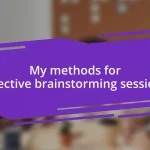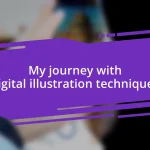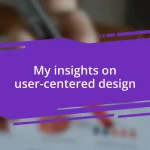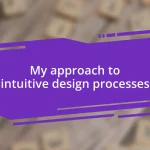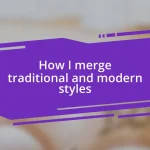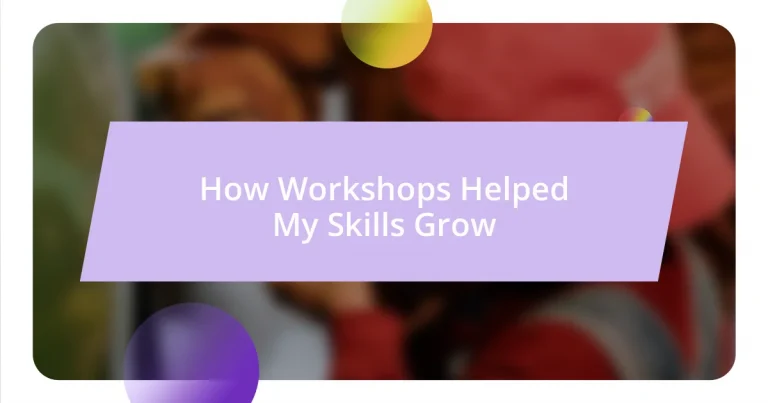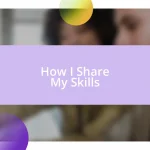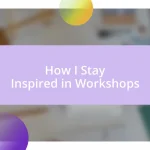Key takeaways:
- Workshops facilitate hands-on learning and boost confidence, transforming participants through supportive environments and practical experiences.
- Networking opportunities during workshops can lead to meaningful professional relationships, collaborative projects, mentorships, and job openings.
- Active engagement, preparation, and follow-up enhance workshop experiences, allowing for continued growth and skill application in one’s career.
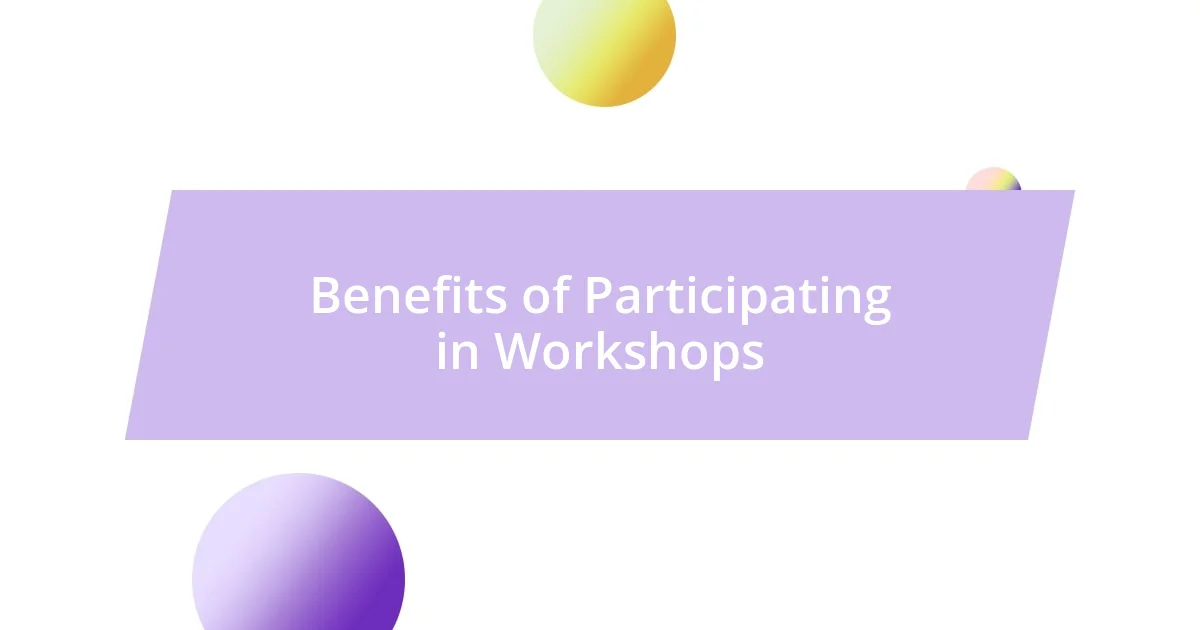
Benefits of Participating in Workshops
Participating in workshops can be a transformative experience, not just for gaining new skills, but also for boosting confidence. I still remember my first workshop on public speaking; I was so nervous that my hands were sweaty and my voice trembled. But as I practiced in front of supportive peers, I felt this sense of empowerment wash over me. Have you ever noticed how learning in a group can make even the toughest subjects feel less daunting?
Another significant benefit of workshops is the networking opportunities they provide. In one workshop I attended about digital marketing, I met several professionals who would later become invaluable contacts in my career. These connections often open doors to collaborations, mentorships, and even job opportunities. Isn’t it amazing how a single event can lead to relationships that enrich both our personal and professional lives?
Workshops also offer hands-on experiences that traditional learning often lacks. For instance, during a recent creative writing workshop, we engaged in activities that allowed us to brainstorm, draft, and share our work in real-time. This interactive format helped solidify my writing skills much better than sitting in a classroom ever could. Have you ever found that learning by doing really makes a difference in how you grasp new concepts?
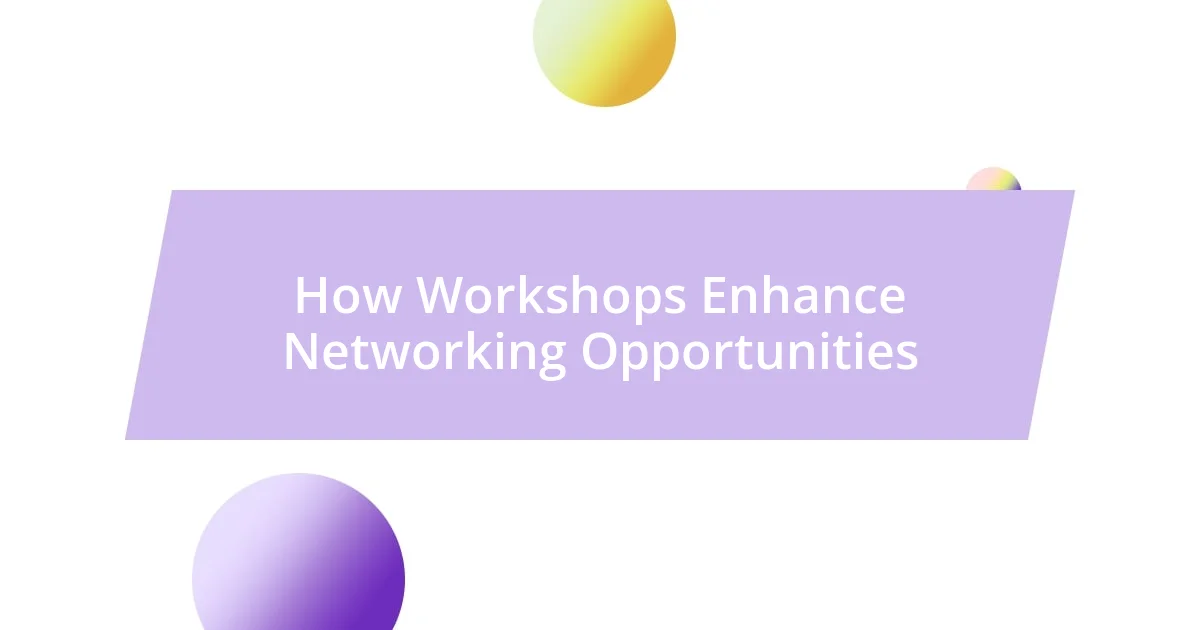
How Workshops Enhance Networking Opportunities
Networking is one of the most rewarding aspects of attending workshops. I clearly remember a workshop on photography where I met a fellow participant who had just launched her own art gallery. We struck up a conversation during a break, and that connection led to a collaborative project that showcased our work. It was a perfect reminder of how interactions at workshops can blossom into meaningful professional relationships.
Another profound example occurred during a leadership workshop where I interacted with individuals from diverse industries. As we shared insights and experiences, the discussions often veered into potential collaborations. It struck me just how many ideas could be born from a simple conversation in a room full of passionate people. When you think about it, each person you meet could present a unique opportunity that you hadn’t considered before.
Not to mention, workshops often have dedicated networking sessions designed to facilitate these connections. I’ve experienced some where attendees exchanged business cards and established plans to meet afterward. These environments tend to foster openness and encourage sharing, making it easier for professionals to connect meaningfully. It’s fascinating how a brief interaction can lead to significant opportunities down the road.
| Opportunity | Description |
|---|---|
| Collaborative Projects | Connections made during workshops can lead to exciting joint ventures. |
| Mentorship | Networking often opens doors to valuable guidance from experienced professionals. |
| Career Advancement | Many find job opportunities through relationships formed at workshops. |
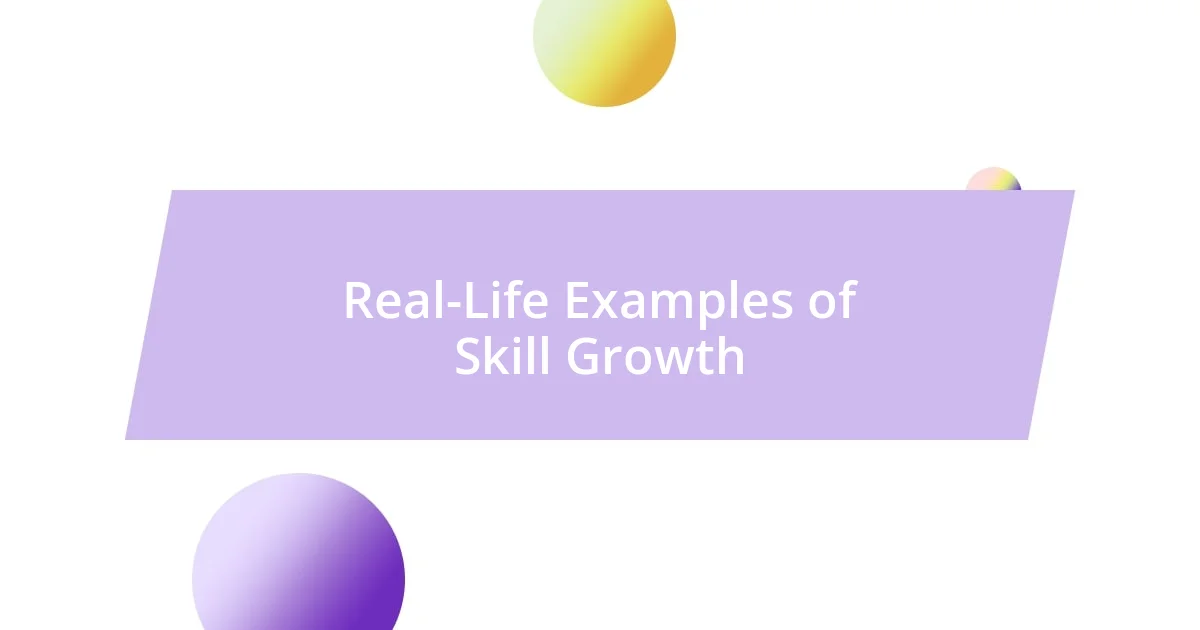
Real-Life Examples of Skill Growth
One of the most powerful ways workshops have helped me grow my skills is through hands-on practice. During a recent coding workshop, I struggled with a programming concept that seemed overwhelmingly complex at first. However, as we worked in pairs to build a simple website, I felt that initial anxiety turn into excitement. My partner’s guidance and shared experiences opened up new ways of thinking about problem-solving. It was like flipping a switch; I saw improvement and understood concepts that had eluded me before.
- Interactive Learning: Working on real projects allows for immediate feedback and understanding.
- Peer Support: Collaborating with others fosters a sense of camaraderie that enhances learning.
- Skill Application: Applying skills in real-time helps solidify understanding and boosts confidence.
Reflecting back on my experience in a recent design workshop, I noticed how participating in group critiques dramatically sharpened my observation and feedback abilities. Presenting my work to peers who offered constructive criticisms was nerve-wracking, but it taught me resilience. Each critique felt like a step up a ladder, gradually allowing me to process feedback positively. This experience didn’t just enhance my design skills; it also helped me accept and implement criticism in various aspects of my professional life.
- Critical Thinking: Exposure to different perspectives enhances analytical skills.
- Resilience Building: Handling feedback helps build emotional strength and adaptability.
- Collaboration Improvement: Regularly giving and receiving critiques fosters better teamwork skills.
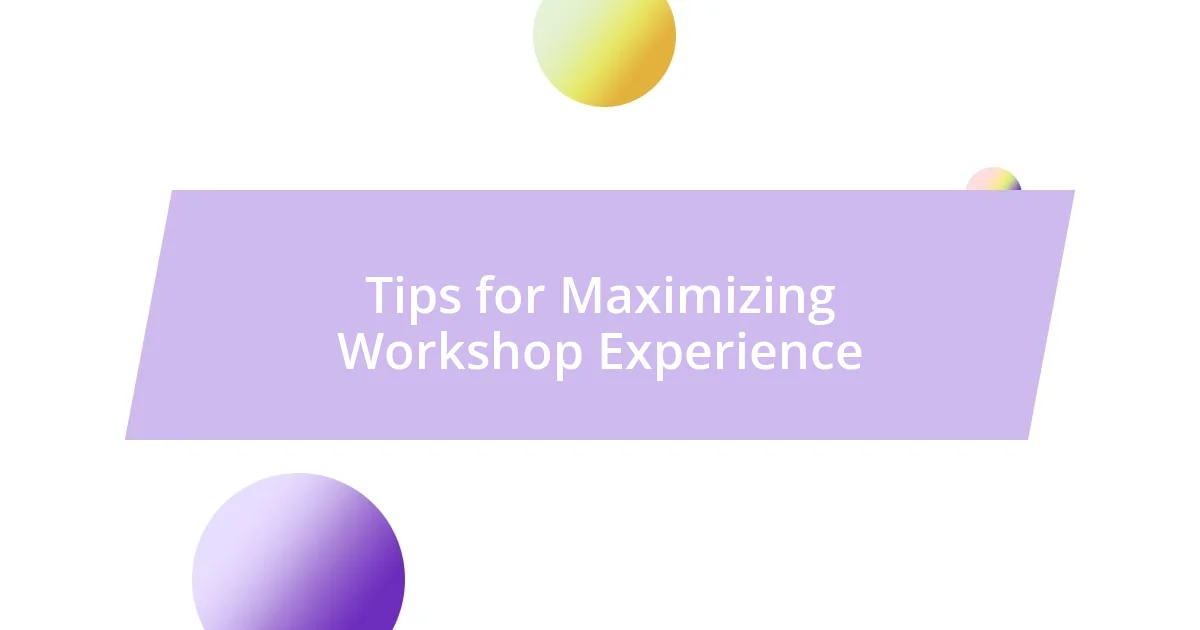
Tips for Maximizing Workshop Experience
To truly maximize your workshop experience, it’s essential to engage actively and stay curious. I recall a time at a marketing workshop where I decided to ask a lot of questions. Not only did this clarify my understanding, but it also sparked interesting discussions with fellow participants and the facilitator. Isn’t it fascinating how a simple question can lead to deeper insights and connections that you hadn’t imagined before?
Another tip is to prepare in advance so that you can fully immerse yourself in the learning process. For instance, before attending a recent finance workshop, I brushed up on key concepts through articles and online courses. This prep work paid off, as I felt more confident sharing my ideas during group activities. When you invest time upfront, you can engage more meaningfully during the sessions, making the overall experience much richer.
Lastly, don’t underestimate the power of follow-up after the workshop. Shortly after a creative writing workshop, I reached out to a few participants I had connected with via email. We decided to form a writing group, and that’s been a game-changer for my growth. Taking the initiative to maintain those relationships can turn a one-time event into a continuous source of feedback, support, and inspiration. How do you plan to keep the momentum going after your next workshop?
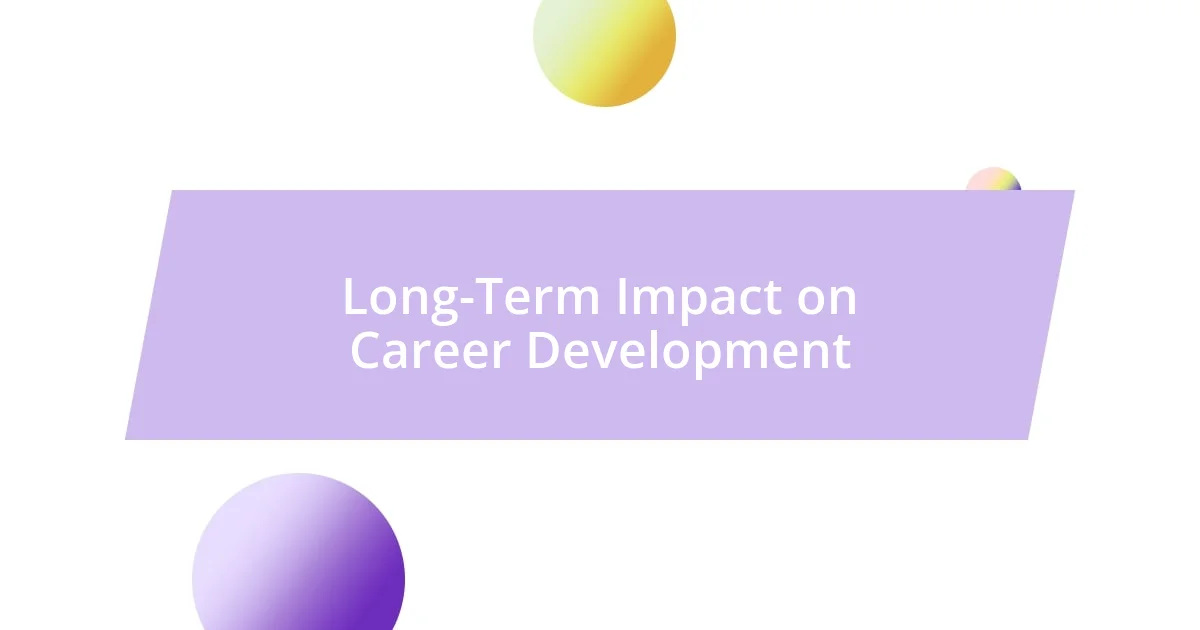
Long-Term Impact on Career Development
Participating in workshops has had a profound long-term impact on my career development in ways I genuinely hadn’t anticipated. For example, after attending a leadership workshop, I noticed a shift in how I approached team dynamics. I used to hesitate in taking charge, but the techniques I learned about effective communication and motivation empowered me. Reflecting on that experience, I realize how it not only improved my confidence but also opened new opportunities for leadership roles in my career.
Moreover, the connections I’ve made through these workshops have been invaluable. I recall a networking session at a digital marketing workshop where I met a mentor who later became a crucial part of my professional journey. Building those relationships has led to collaborations that have enriched my skill set while also expanding my professional network. It’s fascinating to think about how a single conversation can pave the way for unexpected career pathways.
Sometimes I even wonder how far I’d be without the skills and insights I’ve gained from workshops. They’ve not only helped me acquire knowledge but also instilled a sense of lifelong learning in me. Whenever I face new challenges at work, I find myself recalling the lessons learned during those sessions. This ongoing application of skills boosts my adaptability in an ever-evolving job market. Isn’t it empowering to know that your growth doesn’t have to stop at the workshop’s end?
